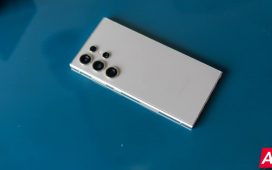
Robert Triggs / Android Authority
TL;DR
- A new tool has been released that lets Huawei devices running Harmony OS Next launch Android apps like Chrome, Gmail, Spotify, and more.
- This is notable because Harmony OS Next doesn’t natively support running Android apps.
- While there are several limitations, Android apps seem to run pretty well regardless.
When the “HUAWEI ban” was enacted in 2019, the company lost access to Google Mobile Services for its Android phones and tablets, forcing it to develop its own homegrown alternatives to Google’s apps and frameworks. Developing an entirely new operating system takes a lot of time, though, which is why the original version of Harmony OS, HUAWEI’s homegrown operating system, was based on Android. That’s meant that HUAWEI devices running Harmony OS can run Android apps, though that’s set to change next year with the release of Harmony OS Next.
HUAWEI positions Harmony OS Next as a genuine Android alternative for its phones and tablets. Unlike the previous version of Harmony OS, Harmony OS Next doesn’t natively support installing or running Android apps. To compensate for this, Next ships with basic applications every smartphone should have such as a calculator, a maps app, and a gallery, but HUAWEI is also working with developers in China to port 4,000 of the 5,000 most popular apps in the country to the platform.

Ryan-Thomas Shaw / Android Authority
Still, many alternatives to Android have failed before because they struggled to get app developers to support the platform. While HUAWEI will likely find success in convincing developers in its home market of China to support Harmony OS Next, it may struggle to persuade overseas developers to follow suit. Instead of waiting for international devs to port their apps to Harmony OS Next, though, beta testers have discovered a new tool that lets them run many of their favorite Android apps right now.
The tool is called 出境易, which roughly translates to “Easy Abroad.” It’s apparently designed to aid Chinese tourists who travel abroad. The tool seems to create a container for Android apps to run in, which is not a new concept but is surprising to see pop up so quickly for the new operating system. When installed, the tool lets you install a number of Android apps from its self-contained app store, including Facebook, Instagram, Discord, Reddit, YouTube, Google Search, Google Maps, Uber, Chrome, Gmail, Spotify, Disney Plus, Netflix, Steam, and more. These Android apps show up in a folder in the home screen but they cannot be dragged out of the folder. You can see what this looks like thanks to these screenshots courtesy of Reddit user Active-Recover-4013:
An early hands-on of the tool from YouTuber LL Techview shows that it works surprisingly well. Android apps launch quickly, run pretty smoothly, and even appear in the recents menu. It’s even possible to sign into your Google Account to use apps like Google Search and Gmail.
Of course, there are a few limitations with the tool, as noted by X user Living In Harmony. First of all, it’s highly unlikely that this containerized version of Android 12 will pass Play Integrity checks, especially once the new Play Integrity upgrades roll out next year. That means many Android apps will refuse to run entirely. Second, the container appears to use microG instead of Google Play Services, which means certain features won’t be supported. Third, only whitelisted Android apps can be installed, according to early adopters. Fourth, notifications for many apps only appear when they’re open. Fifth, apps like Netflix won’t stream videos above SD quality as the build lacks Widevine L1 DRM support. Finally, Android apps in the container don’t have access to files or photos from Harmony OS Next, though it is apparently possible to share files to the Android container.
Apart from the third and sixth limitations, everything else also applies when sideloading Android apps on HUAWEI devices running an Android-based Harmony OS build. But while these limitations are mostly nothing new for HUAWEI users, it remains to be seen whether this tool will continue working as well as it does right now when the stable version of Harmony OS Next is released next year.
If you have a HUAWEI device running the Harmony OS Next beta, give the “Easy Aboard” app a shot and let us know how well it works for you!








